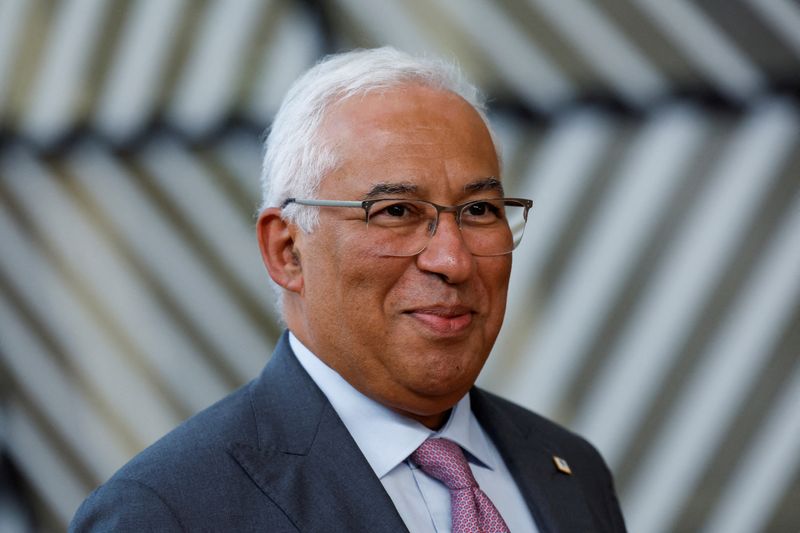
© Reuters. FILE PHOTO: Portugal’s Prime Minister Antonio Costa speaks as he attends the European Union leaders’ summit in Brussels, Belgium October 20, 2022. REUTERS/Piroschka van de Wouw
By Sergio Goncalves
LISBON (Reuters) – Portugal’s Prime Minister Antonio Costa has urged the European Central Bank (ECB) to be prudent in raising interest rates from abnormally low levels, despite not expecting a dramatic increase in household bad loans in his country.
The ECB has been unwinding policy support over the past year and lifted rates by a total of 125 basis points at its past two meetings, its fastest pace of policy tightening so far.
Costa said he “understands the logic of normalizing monetary policy”.
“(But) I think that the ECB, in all its independence, should be prudent in raising interest rates to control inflation”, he told journalists.
The ECB targets inflation of 2% in the medium-term, but the rate in the euro zone was 10% last month.
Costa said the ECB should bear in mind that “inflation is not so much the result of increasing money supply and people’s income”.
He said inflation was more due to supply-side shocks such as Russia’s war against Ukraine, which “aggravated the disruption of supply chains, which was already present in the post-pandemic period, and created an energy crisis”.
Costa said households with variable rate home mortgages, which represent more than 90% of the country’s stock of 1.4 million home loans, “should be aware that interest rates are on an upward trend”.
But he’s not too worried, noting an expected surge in non-performing loans (NPLs) during the pandemic failed to materialise.
Portugal’s banks are still scarred from a debt crisis and a spike in NPLs after the 2010-13 recession. They have since reduced NPLs to a total of 11.4 billion euros ($11.3 billion) in June 2022 from a peak of 50 billion euros in June 2016, according to the latest Bank of Portugal data.
The NPL ratio for Portugal’s banks was 3.4% of total credit in June, versus 17.9% in mid-2016, but above the European average of 1.95%.
($1 = 1.0133 euros)
Source: Investing.com



























